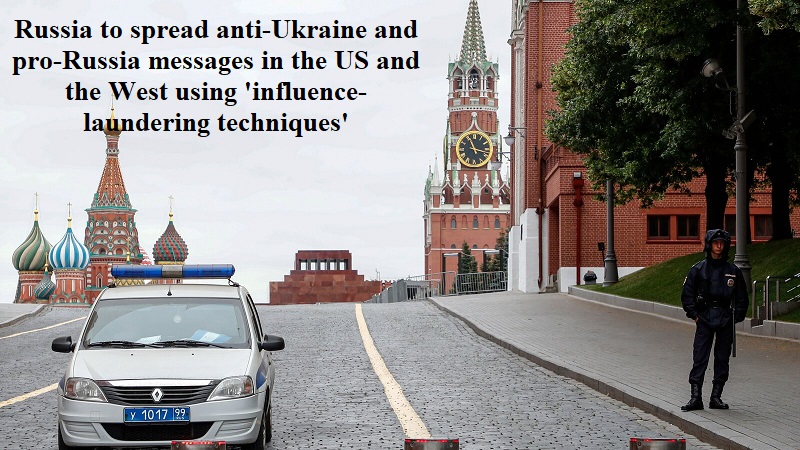
Russia has reportedly initiated a campaign to disseminate anti-Ukraine and pro-Russia narratives in the United States and Western nations using “influence-laundering techniques,” as disclosed by The New York Times. This endeavor is undertaken to obscure the involvement of its intelligence agencies in manipulating public sentiment. The New York Times references a recently declassified analysis from American intelligence sources.
Russia has faced widespread allegations of engaging in activities to sway US voters in the lead-up to the 2016 Presidential Election. These efforts, media reports suggest, were intended to yield immediate impacts.
Nevertheless, according to The New York Times, the newly unveiled US document delves into the strategies employed by Russian intelligence services, particularly the Federal Security Service (FSB), which involve leveraging collaborators within various organizations to disseminate propaganda and establish connections with emerging leaders. These endeavors aim to exert influence over a longer time frame.
The recent turn of events in Russia, including the reported insurrection and apparent death of Yevgeny Prigozhin, could have dealt a setback to Russian influence operations. Prigozhin, who heads the Wagner Group, was also the founder of the Internet Research Agency (IRA). The IRA, which was dissolved recently, was allegedly linked to numerous active and prominent troll farms that supported Donald Trump during the 2016 elections.
The New York Times asserts that the newly disclosed information from the US seeks to underscore the depth of Russia’s influence operations. These efforts also center around cultivating young leaders who could potentially aid Russia in the future or disseminate pro-Russian messages in their respective countries. These initiatives bear resemblance to espionage endeavors from the Soviet era, which aimed to cultivate alliances with individuals sharing similar ideological beliefs and serve as informants.
An unnamed US official, as quoted by The New York Times, mentioned that the declassified document alludes to a group of “co-optees” who present themselves as acting independently, but in reality are agents of Russia conducting influence operations against the US.

Post Your Comments